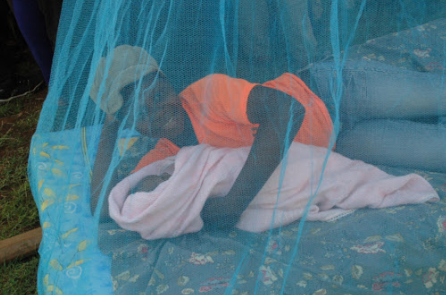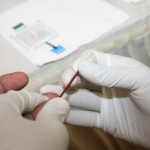An unnamed number of Kenyan women will take part in a trial to find the appropriate drug to treat malaria in the first three months of pregnancy.
“The trial will evaluate the efficacy, safety, tolerability and cost-effectiveness of antimalarial drugs to treat uncomplicated malaria,” the Kenya Medical Research Institute, which is taking part in the trial, said in a statement.
The SAFIRE consortium, comprising scientific and social research experts in malaria during pregnancy, will conduct an important study on the safety of antimalarials in early pregnancy.
This initiative, led by Kemri, aims to gather evidence on the efficacy, safety, and tolerability of antimalarial drugs specifically during the first trimester. The study will utilize an adaptive platform trial approach along with social research methodologies.
According to Dr. Hellen Barsosio, a scientific co-lead of the project and a research scientist focusing on maternal and newborn health at Kemri, pregnant women are often excluded from clinical trials due to concerns about potential harm to both the mother and the fetus.
The SAFIRE trial intends to address this gap by systematically evaluating treatment options for malaria in early pregnancy. The findings from this study are expected to inform and influence policy and guidelines related to antimalarial treatment during the first trimester, with the enrollment of participants scheduled to begin in 2025.
“Determining which antimalarial medicines are efficacious and well tolerated in the first trimester will benefit all women of childbearing age, including those who may be unaware they are pregnant, by enabling them to take these medicines without risk of causing harm to themselves or their unborn babies,” Dr Barsosio said.
Dr. Hellen Barsosio highlighted the critical health risks associated with malaria during pregnancy, including miscarriage, stillbirth, preterm delivery, low birthweight, severe maternal anemia, severe malaria, and maternal mortality. She emphasized that pregnant women in their first trimester have limited options for malaria treatment and none for prevention.
Artemisinin-based combination therapies (ACTs) are recommended as the first-line treatment for malaria by the World Health Organization (WHO). As of 2022, only one ACT, artemether-lumefantrine (AL), is recommended for use to treat uncomplicated malaria in the first trimester. However, Kemri pointed out concerns about emerging drug resistance in several African countries, which has become a significant issue.
To mitigate drug resistance, Kemri suggested diversifying the use of ACTs for treating malaria. This approach aims to enhance treatment efficacy and combat the development of resistance, thereby improving outcomes for pregnant women and reducing the overall burden of malaria in affected regions.
“However, this may result in inadvertently exposing women in their first trimester to drugs other than AL. To proactively address potential risks, the trial will initially evaluate two treatment arms: pyronaridine-artesunate (PA) with the widely used AL serving as the comparator,” it said in a statement.
“PA is an ACT recommended by WHO to treat malaria in the general population. To date, preclinical data and clinical data generated for the medicine through ongoing pregnancy registries are reassuring for both mothers and their newborns.”
The trial will span across Burkina Faso, Kenya, and Mali. In Kenya alone, malaria claims approximately 10,000 lives annually, as reported by the Ministry of Health. Kemri emphasized that despite financial incentives for malaria elimination, the global health community is falling short on its commitment to eradicate malaria by 2030.
According to the WHO World Malaria Report of 2023, 36 percent of pregnancies in Africa in 2022 were exposed to malaria. More than half of these infections occur before the second trimester of pregnancy. Experts caution that neglecting the prevention and treatment of malaria in early pregnancy could undermine broader efforts to eliminate malaria altogether.



